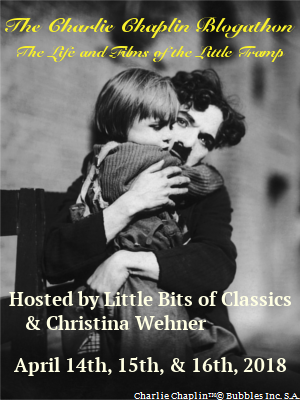 If I had a time machine and could go anywhere at all, I would go back to the opening night of My Fair Lady in 1956. My Fair Lady has what is for me one of the most glorious, exhilarating, beautiful, even magical, scores of any musicals. However, while My Fair Lady was enjoying its sensational run on Broadway, the composer Frederick Loewe and lyricist Alan Jay Lerner came to Hollywood and helped turned Colette’s novella Gigi into a musical.
If I had a time machine and could go anywhere at all, I would go back to the opening night of My Fair Lady in 1956. My Fair Lady has what is for me one of the most glorious, exhilarating, beautiful, even magical, scores of any musicals. However, while My Fair Lady was enjoying its sensational run on Broadway, the composer Frederick Loewe and lyricist Alan Jay Lerner came to Hollywood and helped turned Colette’s novella Gigi into a musical.
The stories are so similar, it’s almost impossible not to compare the two. Critic Bosley Crowther even joked that Gigi “bears such a basic resemblance to My Fair Lady that the authors may want to sue themselves.” The first time I saw it, my reaction was tepid. The music just never seemed to take off and soar like it does in My Fair Lady. However, on viewing it a second time, I have to admit that as a movie, Gigi might be more successful than the later 1964 film adaptation of My Fair Lady. Vincente Minnelli directed, some filming was done in Paris and on the whole it feels far more fluid and attractive than the more stage-bound and slightly stiff My Fair Lady (which I still watch frequently because it’s the closest I’ll ever get to the opening night in 1956 and I really shouldn’t complain).
The story occurs during the turn of the century in Paris. Gigi (Leslie Caron) is being raised to be a courtesan by her grandmother, Mamita (Hermione Gingold), and Aunt Alicia (Isabel Jeans). Meanwhile, Gaston Lachaille (Louis Jourdan) is wealthy and bored, while his uncle, Honore Lachaille (Maurice Chevalier), seems to love every minute of his life as a roue. The only people Gaston feels like he can relax with is Gigi and Mamita…until he realizes that Gigi’s no longer a child and he offers to make her his mistress.
When I watched Gigi this second time, it struck me that though the musical is called Gigi, it’s not really about her as much as it is Gaston (though I suspect that is not the case in the novella). Gigi seems like an enigma to me. We never find out why she’s like she is – unaffected, innocent despite being trained up as a courtesan, dissatisfied with the prospect of being a courtesan and playing the games of love. What makes her so different? Was it her grandmother’s doing?
Hermione Gingold as Madame Alvarez – “Mamita”- provides an unexpected center and heart for the film, suggesting all sorts of depths of character. She’s savvy, has a sense of humor, knows how to ingratiate herself with men, even Gaston. She was, after all, a professional courtesan, though she doesn’t seem to have made out as successfully as her very wealthy sister Alicia. Was she, perhaps, not as hard-core as her sister? Alicia is the one who really preaches to Gigi about pleasing men and making sure you get the right kinds of jewels from one’s lovers and so on.
But Mamita, after all these years, seems to harbor a soft spot for Honore Lachaille, though he was untrue to her while they were together, and carries a touch of sadness and wistfulness. Life didn’t really give her all that she wanted, it seems. And she lets her daughter work in opera, even though she cannot sing. Whatever makes her daughter happy, apparently. Ultimately, Mamita has the same approach with Gigi. They seem to be an unorthodox bunch.
I have not seen Louis Jourdan in much (except in the beautiful Letter From an Unknown Woman), but he evidently did all his own singing, somewhat in the style of Rex Harrison. Initially, when we meet his character, he seems like a crank. He’s “bored” with everything, while his uncle, Honore, finds so much to enjoy in life. However, as the story progresses, one begins to understand why Gaston is so bored and to feel less sympathy with Honore’s attitude towards life and women.
Gaston pretty much does what everyone tells him to do – especially Honore – and what society expects of him. Ironically, the film shows how a promiscuous society can be just as much a prison as excessive puritanism, with its own rules and codes of conduct. Gaston hops from mistress to mistress, without love or affection. He must defend his “honor,” pretend to be a cheerful bon vivant and at all costs never appear ridiculous. Why? Because that’s what everyone does and he hasn’t yet realized that he neither needs nor wants to live that way.
The best songs in the film, in my opinion, are the ones that Gaston sings. They reveal his character and show his inner thoughts and how he comes to understand himself better – especially in the song “Gigi” when he realizes that he loves her. Lerner and Loewe seem especially good at using music this way. They do the same thing in My Fair Lady when Professor Higgins sings that he’s “grown accustomed to her face.” And the songs are long enough to make the transformations feel plausible.
 I was watching a video on youtube recently, where a film editor explained that emotions take time and film editors have to take that into account and not rush the scene along. What Lerner and Loewe do is use music and song to give us that time. Those moments, for me, are some of the most compelling in Gigi.
I was watching a video on youtube recently, where a film editor explained that emotions take time and film editors have to take that into account and not rush the scene along. What Lerner and Loewe do is use music and song to give us that time. Those moments, for me, are some of the most compelling in Gigi.
One of the best scenes is when Gaston realizes that Gigi has grown up and he loves her – something that comes as a complete shock to him because it never before occurred to him that she was someone he could love (like how we put certain people off-limits for ourselves. It doesn’t occur to people to love siblings or cousins because it is not really an option. It’s partly a social construct, a mental block we put up. Gaston discovers that he doesn’t need to have that mental block about Gigi).
The other song is between Honore and Mamita, as they sit and reminisce. It’s such a gentle song, witty and amusing, but with a touch of sadness and a layer of irony. Honore clearly does harbor fond memories of Mamita, but the lovely things he tells her (like how he loved her so much he had to have an affair with another women to remind him that he was not the marrying kind) sound so nice we want to believe them, but it is clear that Mamita does not, but she harbors no rancor towards him.
I still can’t entirely decide what I feel about this movie. It’s charming, I like it, the story is intriguing, but the music never quite captures my imagination the same way that My Fair Lady does. My Fair Lady is sheer exhilaration. The acting in Gigi is good. I was especially impressed with Louis Jourdan and Hermione Gingold this time around. Perhaps the greatest mark of its affect on me is that I would like to watch it again and give the movie a chance to grow on me, because I suspect I will like it the more I see it.







